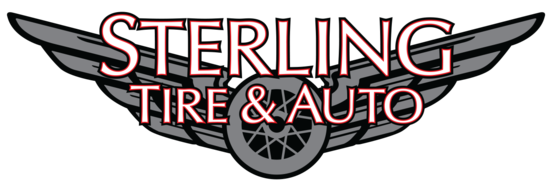Timing Belt
December 4, 2022
Ever heard the sad tale of a staggeringly steep repair bill from a broken timing belt? Bad news. Let's take a lesson from their woes and remember to think about our timing belt.
First, let's review what a timing belt does. The top part of the engine over the cylinders is called the cylinder head. The head contains the valves. There's at least one valve that lets the fresh air into the cylinder. This air, mixed with fuel, burns to create power. Then another valve or two will open to allow the exhaust out of the engine. Each cylinder has 2 to 4 valves - that's 12 to 24 valves for a V-6, up to 32 values on a V-8. The opening and closing of the valves is done by a camshaft. The timing belt uses the rotation of the engine to drive the camshaft which opens and close the valves. It's called a timing belt because it has to be adjusted to rotate the camshaft to keep proper time with the engine so that everything's in sync.
The timing belt is a toothed rubber belt. But some vehicles use a timing chain or timing gears instead of a belt. Timing chains and gears are much more durable, but vehicle manufactures are using belts more because they are quieter - and cheaper. If you have a small or mid-sized passenger car, crossover or mini-van, chances are you have a timing belt.
Unfortunately, timing belts fail without any warning. That shuts your engine down right away. Your pros at Sterling Tire & Auto can inspect your timing belt and look for cracks and looseness. But getting to the belt to take a look can be almost as much work as changing it on some vehicles. That's why manufacturers recommend replacing the belt from time to time. For most vehicles it's from 60,000 to 90,000 miles or 95,000 to 145,000 kilometers. If your owner's manual doesn't specify an interval, ask your service advisor at Sterling Tire & Auto.
Someone we know, who shall remain anonymous, has had two timing belts fail. The first was while he was waiting at a stop light - that repair cost several thousand dollars. The second was while driving on the highway - that one cost more than twice as much. Both had the cars out in the shop for three weeks. His cars had what we call "interference engines," meaning that the valves and pistons are very close to each other. If the timing belt slips even one notch, the pistons will slam into the open valves. That's why our friend's highway failure was so much more - his engine was traveling so fast that the valves were smashed and they chewed up the cylinder head.
A non-interference engine will just shut down if the timing belt breaks. You're stranded, but the engine doesn't suffer permanent damage. In both cases, our hapless friend was just a couple oil changes past the recommended interval for changing the timing belt. This is one of those things that Sterling Heights drivers just cannot put off. Now replacing a timing belt is not cheap - but repairs for a broken belt can be far more expensive.
The team at Sterling Tire & Auto recommends Sterling Heights drivers check their owners' manual ASAP - especially if you have more than a 60,000 miles or 95,000 kilometers. You may need to get that belt replaced right away. And on many cars, the timing belt drives the water pump. So, it may be a good idea to replace the water pump while you're at it because 90% of the work required for the new pump is already done with the belt change. Doing both at the same time saves you a lot of money because as they say, "timing's everything."
Sterling Tire & Auto
34701 Van Dyke Rd
Sterling Heights, Michigan 48312
586-264-7775
Need Service?
More articles from Sterling Tire & Auto

If the Shoe Fits (Brake Shoe Replacement [Rear])
February 22, 2026
When it comes to brakes on your vehicle, we all know how important it is to keep them working well because they are vital safety equipment. After all, if you cant slow down and stop, you cant drive safely. While many vehicles use what are called disc brakes, theres another type of brakes that ... More

Rumble from Down Under (Muffler Replacement)
February 15, 2026
Weve all noticed them at one time or another on the street: a car or truck that drives by and the deep roar from their exhaust system sounds like a drag racer on the line. But what happens when that rumble is coming from under YOUR vehicle? Well, it could be a sign your muffler needs attention. ... More

Go with the Flow (MAF Sensor Replacement)
February 8, 2026
If your vehicle has an internal combustion engine, it depends on two things to make propulsion power for you to be able to motor on down the road: fuel and air. The engine mixes the two in just the right proportion so that they can be ignited, creating a series of tiny explosions that are coordi... More








